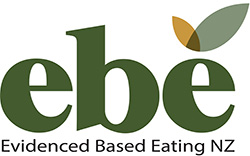Evidence Based Eating New Zealand has issued an open letter and counter-petition opposing New Zealand Federated Farmers’ campaign on climate change resources being introduced to New Zealand schools.
The petition, which has so far gathered over 600 signatures, calls on all Kiwis to support the Ministry of Education resource, Climate Change – prepare today, live well tomorrow.
The resource rightfully joins the dots between food and climate change but has raised concerns amongst some farmers because of its suggestion to cut back on the consumption of meat and dairy products.
“This petition is important as it lets the public know that there are many out there who believe we must take action on climate change and give our children, real, practical measures that they can take,” EBE NZ chairman, Grant Dixon, says.
It is essential that our government, schools and healthcare institutions respond proportionately to the climate crisis.
Food can be a powerful driver of change. This new tool, Climate Change – Prepare Today, live well tomorrow, provides our teachers with an opportunity to empower the next generation to secure their future.
“And there’s also a bonus,” says Dixon, “not only will eating less meat and dairy mean less greenhouse gases, it will also mean less chronic diseases such as cardiovascular disease and some cancers.
EBE deputy chairperson, Dr Caitlin Randles, notes that researchers from the University of Otago have found if we collectively shift towards a more plant-based diet we have the potential to save the healthcare sector billions of dollars.
“As a doctor, I am united with my colleagues by our grave concern about the intimately connected impacts of our food choices on our health and the planet.”
Dr Randles says the petition was not only aimed at galvanising support for the educational resource amongst the general public but also to provide an evidence-based pragmatic voice in the media to counter opposition statements from groups such as Federated Farmers with vested financial interests.”
She further notes, ‘the recent school strikes have demonstrated that the next generation is demanding this is prioritised in their education. They have the right to protect their future.’
The petition can be viewed and signed at the following link:
http://chng.it/JQ4jmJbqwm
EBE’S Open Letter is as follows:
Open Letter of Support for the Ministry of Education’s Resource Climate Change – prepare today, live well tomorrow
Evidence Based Eating (EBE) welcome this positive and necessary step taken by the Ministry of Education to educate our children on the effects of climate change. It is essential that our government, schools and healthcare institutions respond proportionately to the climate crisis. Food can be a powerful driver of change. This new tool, Climate Change – prepare today, live well tomorrow, provides our teachers with an opportunity to empower the next generation to secure their future.
As an organisation consisting of doctors, allied health professionals and health advocates we wholeheartedly endorse any resources and policy that educates the population on the impact of their food choices. Shifting towards a more plant-focused diet by reducing or eliminating animal products, and increasing the consumption of fruits, vegetables, legumes, and whole grains, will have substantial benefits for our personal health and that of the planet.
It is the right of all New Zealand children to be educated about the critical issues of their times, and importantly for the way these issues are presented to be free of political and commercial bias. The recommendation in Climate Change – prepare today, live well tomorrow to consider reduction of meat and dairy consumption is well aligned with both expert opinion and scientific consensus. Earlier last year, the EAT-Lancet Commission on Food, Planet and Health recommended reduction in meat and dairy consumption for the health of populations and the planet. Just this week, University of Otago researchers have demonstrated this recommendation to have substantial merit in the New Zealand context also, enabling reductions in diet-related emissions of between 4-42% and health care system cost savings of $14-20 billion. Indeed, the Ministry of Health has itself recommended reduction of meat and dairy as an action for sustainability in their 2019 report Sustainability and the Health Sector: A guide to getting started.
We have been disappointed with media coverage misrepresenting this way of eating as lacking nutrients when in fact, plant-based diets are rich in a wide variety of nutrients. Some reaction towards Climate Change – prepare today, live well tomorrow seems to be based upon the erroneous perception that this resource is ‘absolutist’ and encouraging children to eliminate animal products entirely. In reality, it will support the reduction of these products and facilitate children’s ability to think critically about the impact of their food choices on the health of their planet and communities.
We are dismayed but unsurprised by the reaction from industry including DairyNZ, Beef and Lamb, and Federated Farmers who have all responded in a fashion demonstrating their commitment to retaining market share, rather than to taking responsible action in the face of imminent climate breakdown. It is well established that animal agriculture is a significant contributor to New Zealand’s greenhouse gas emissions and pollution of our awa and waterways. A urgent shift in our food system is needed both to reflect the enormity of the looming environmental disaster and to futureproof our economy. It is high time for commercial interests to cease their attempts to polarise and confuse the New Zealand public, and most especially our youngest and most impressionable citizens.
We celebrate the opportunity to simultaneously address climate change and our escalating levels of diet-related disease through collectively shifting towards a plant-focused diet. We call on prompt national policy action to reflect the growing body of research supporting this way of eating. Whilst this is not the only solution, it is an essential step in the right direction. We congratulate the Minister and the Ministry of Education for their courage and dedication in protecting and promoting the health of our children and the planet they will inherit. Prepare today, live well tomorrow.
References
Willett, W., Rockström, J., Loken, B., Springmann, M., et.al. 2019. Food in the Anthropocene: the EAT–Lancet Commission on healthy diets from sustainable food systems. EAT-Lancet EAT–Lancet Commission on healthy diets from sustainable food systems. DOI: 10.1016/S0140-6736(18)31788-4
Drew, J., Cleghorn, C., Macmillan, A., Mizdrak, A., Healthy and Climate-Friendly Eating Patterns in the New Zealand Context. Environmental Health Perspectives. 2020 Jan; 128(1). DOI: 10.1289/EHP5996
Ministry of Health. 2019. Sustainability and the Health Sector: A guide to getting started. Wellington: Ministry of Health.


